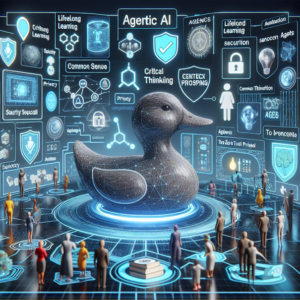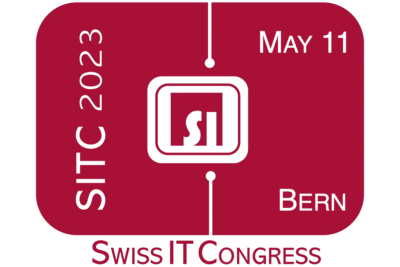 Everyone seems to agree that digital transformation has a trust problem, but few try to look behind the curtain: What is the nature of the problem?
Everyone seems to agree that digital transformation has a trust problem, but few try to look behind the curtain: What is the nature of the problem?
Trust is one of those concepts that can endlessly be discussed without any conclusions or impact. Like freedom. The analysis of language practice tells us that trust is used in IT discussions as a polite description of assumed non-compliance. “Silly people do not use this great technology, but we cannot call them silly, so we say that there is a trust problem!” This has indeed nothing to do with whatever you might associate with trust. It is a failure of sales activities.
People trust in corrupt decision makers. IT users trust in companies selling their data – among others – to malign universities specialized on recruiting losers as students. They even trust in foreign dictatorships collecting their data, while they distrust their own democratic government. Does this make sense? No, if you think of trust as the traditional concept. Yes, if you think in trust as user acceptance and buy-in. Yes, if you think of trust as weighing of perceived advantages against perceived disadvantages.
Ok, it is true that people do not oversee all misuse of their data and the resulting risks for them, but they are neither silly nor irrational. They are only not objective, whatever objectivity might be. People weigh the advantages they perceive against the risks and disadvantages they perceive, and they discount long term promises due to natural uncertainty of anything (far) in the future. Consequently, they may judge the value of a digital service very differently than the creators of this service. We may wrap this failure of sales on the side of service creators as a trust problem, but this is what Wittgenstein called “letting the language go on holiday”.
So far, so simple. But what about concepts like the trust dividend? And eventually: What about the nature of the firm? There, things have changed, too. Long term pay-off for commitment to your employer had vanished. Either you manage to get immediate remuneration, or your commitment will not pay off for you. By the latest when the management changes, your past contributions are forgotten. Young people have understood that the contemporary world, and for more the future world to come, is and will be totally different from their parents’ and grandparents’ world. Back in the past, commitment used to pay off after many years. But this no longer holds. Consequently, the trust in long term relationships has started to vaporize. It is still somewhat part of our culture, but in the years to come it will be blown away by future disruptions. This is the true reason why the prediction in “Das Digital – Reinventing Capitalism in the Age of Big Data” may indeed become true. We must rethink the concept of the firm, and eventually it might even turn out that Peter Drucker’s late forecasts may come true, that specialists feel more affiliated with their disciplinary peers than with their employers.
Computer games industry provides an indication of where our society may go. There, we see interdisciplinary networks to which specialists feel affiliated. They join projects if people they know and they like join them, too. Opposite to this trend, companies still place recruitment adds where they talk about the greatness of the employer. Utter nonsense.
Still, there are a lot of social aspects not understood and the development is rather dynamic. For example, my personal experience in entrepreneurship has demonstrated the working of the traditional peer community concept. All-acad.com AG was successful as a service of mathematicians for mathematicians. That is, it strongly benefitted from its street credibility. When we realized that HR departments “distrusted” our optimization for the customers – mathematicians looking for a (new) job – we started to sell our services to line managers who were mathematicians and cared more about the quality of the applications they received than the visual design of the website or its click numbers. While one might interpret this as “value for customers pays off”, it would not have worked if line managers would not have been mathematicians trusting in us as peers.
Looking at the backside of this entrepreneurial experience we may speculate that for employees of HR departments it does more count what other HR specialists think than what their customers (the line managers) think. Or more simply, that what really matters to people is how their bosses perceive their work, not their customers. For similar reasons in many situations business mandates are only given to large corporations, even if it is obvious that they will do a much less good job than small companies with relevant expertise. Is this a trust issue? Rather not. It more looks like a save-my-ass strategy.
What we call “trust” is more a question of personal utility, which includes economic benefits, the absence of personal risks, and sympathy. And it is all about perception, thus to a large extent also about communication.
So far, still quite simple. But what about the distrust in vaccination? What about the trust in blockchain technology? Both have to do with the emerging super-multisource of information. The complexity of information easily available on the web has a strong impact on behavior and underlying perceptions. It both weakens common beliefs in institutions, and it strengthens beliefs in strong narratives that simplify the world. In addition, there is a long anti-vaccination tradition in some countries, for example in German-speaking countries. Plus, the natural tendency of the young to overthrow their parents’ culture plays a big role for technology take-up. Paradoxically, the embracing of blockchain technology is both a revolt against established institutions and a reaction to the perceived loss of the concept of trust. Most people oppose in their individual lives some of their parents’ views and they copy many others. Thus, it is rather natural to compensate a lost cultural tradition of one’s parents with a new technological concept.
Many digital immigrants consider distributed ledger technology as a technology although most of them do not understand how it works. For them it is a magic black technology box. However, distributed ledger technology is neither just a technology nor a set of business cases. It is rather a technology successfully paired with a strong narrative upon which smart entrepreneurs or politicians may build business cases or polity projects. The original anti-institutional narrative has been merged with the narrative that “you can get rich without real work” if you invest into cyber currencies or colored coins. That way it looks like the best of both worlds: It helps you create public value and to get rich at the same time, which brings us back to the concept of personal utility.
“Trust is a synonym for perceived personal utility”
Trust is a synonym for perceived personal utility in form of economic advantage, absence of personal risks, sympathy, emotional satisfaction, and accordance with internalized narratives. It has always been like that, but perceptions and narratives have changed. While in the past it made sense to talk about trust in society, today it only makes sense to talk about trust in a specific social context. But “trust in IT” differs significantly from “trust in other people” in a social setting, as the nature of experiences is (in general) a different one.
Does this help us to solve the trust problem? Somewhat, as we can focus on the perception of advantages, the emotional value, and the narratives when we design digital tools and services. Let us apply this to two cases
- If we would follow that strategy with electronic patient files this would improve healthcare in the D-A-CH region dramatically. That is, to win “trust” in the public sector we must act as we would try to make billions or as we would try to save an individual life. We must combine the best practices from both worlds, government, and big business.
- If we would follow that strategy in the digital transformation of a company or organization, we would face a different problem: The narrative is hard to establish if it is not backed outside the company. In addition, in big companies the alignment of incentives is hard to achieve. Higher disciplinary education and continuing education could help here by teaching both focus on individual utility and proper generic narratives.
These two examples indicate that we must rethink management practices in the public sector, and we must develop higher education and continuing education to better address the “sales problem” of technology. We should really start working on it!
Remarks
- Our course “Digital Enterprise” at BFH is designed as a language course.
- Our Digital Health Symposium at Praevenire addresses this May for the second time the topic of electronic patient files together with trust issues.
You might consult my old paper: Reinhard Riedl. Rethinking trust and confidence in European e-government. In: Building the E-Service Society. Springer, Boston, MA, 2004. pp. 89-108. (accessible also on reseatchgate.net)
Reinhard Riedl, MEng PhD, is a mathematician who focuses on transdisciplinary research combining computer science, business administration, law, political science, economics, psychology, sociology, and ethnology.









